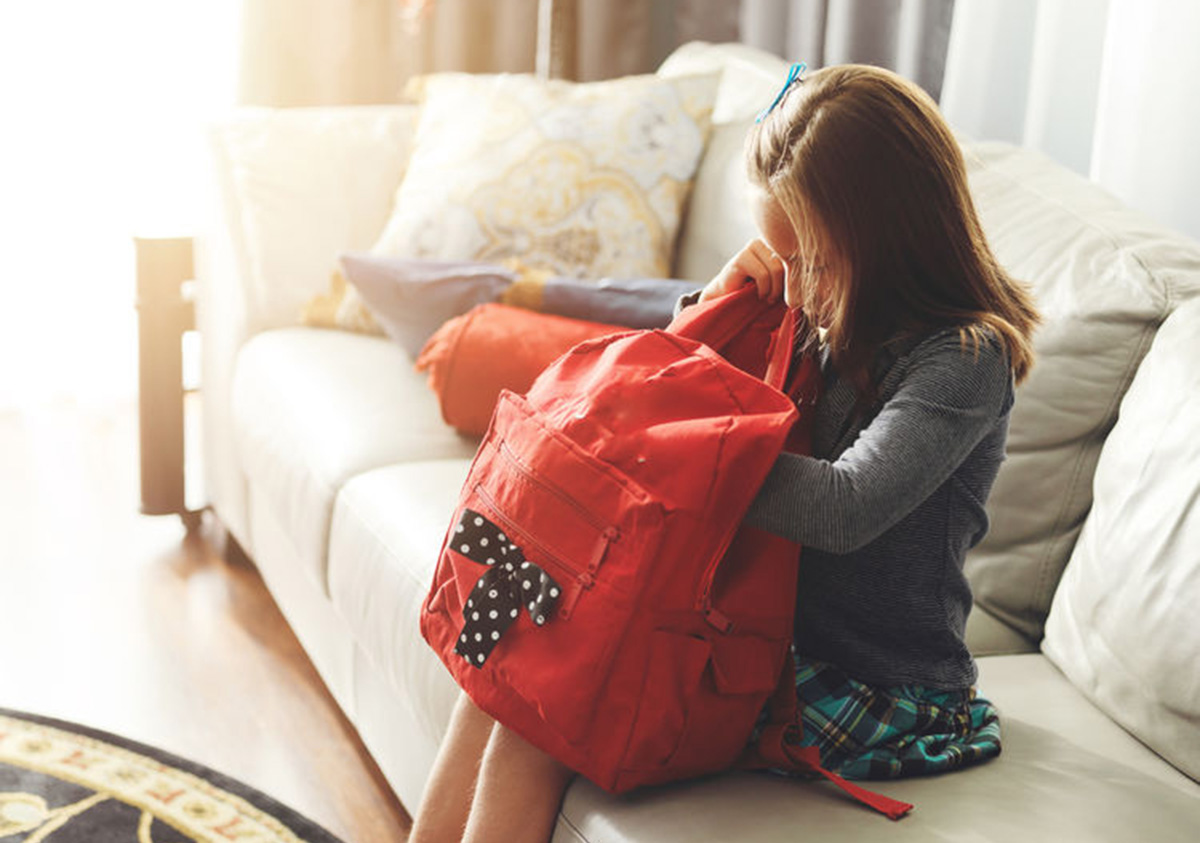
Childcare Environments
Strategies to Help Relieve Back to School Anxiety
Relieving Back to School Anxiety
Sending your child off to school for the first time is a challenging situation for everyone. It’s normal for both of you to feel anxious about such a big change and to experience back to school anxiety.
Some children may express their fears when you start preparations, whereas others start off excited and confident, until the day comes and the parent needs to say goodbye at drop-off.
Below are a few signs and strategies for recognising and helping to relieve that anxiety.
Home
- Avoidance of activities or discussions about school.
- Stomach aches or headaches that occur when asked to do something to prepare for school.
- Difficulty sleeping and/or falling asleep, nightmares or doesn’t want to sleep alone.
- Lots of worries about school and a strong need for reassurance.
School
- Struggles to say goodbye to parents at start of day.
- Wants their work or activities to be perfect.
- Difficulty joining others in activities.
- Complains of stomach aches or headaches, requests sickbay or a parent.
- Reluctant to ask for help from the teacher.
- Or asks the teacher for constant reassurance.
If you’d like to read more on helping children to cope with big life changes then check out: Helping Children to Cope with Stress and Change
Practical preparations
Involving your child in preparations gives them some control over the new situation.
Picking out a new raincoat, wellies, trainers, lunchbox, drink bottle and backpack for themselves will create an element of fun and excitement. They’ll look forward to using these special new items independently.
Explore the new environment
Do a run to school in the months before school begins. Point out familiar places on the route, and explore the school grounds, letting the child be the guide.
If possible, visit the school while classes are being run (at the end of the previous year). Ask for a guided tour to learn where the toilets, their classroom, front office, playground and water taps are. This will also help your child get used to the sounds of the school grounds and other big kids, and become familiar with class sizes.
EYFS Developmental Milestones – Download Free eBook
If offered, take advantage of the school orientation program. Your child can meet other students and get to know their teacher while you can be there.
Communicate with the teacher
Discuss your child’s anxiety with the teacher. Consider whether you’ll need their support during morning goodbyes (a quick goodbye works best when the child has other activities to focus on).
A visual classroom schedule helps children prepare for the day, and a dedicated safe space is comforting when they feel overwhelmed.
Schedule play dates with other children
If you can, organise to meet other students and parents of your child’s class, in small groups or one-on-one play dates. Meeting at a familiar playground or your own home will help them feel safe and confident around their new classmates.
Discuss feelings and ideas
Set aside some time each week to sit down, during a quiet period of the day, and talk with your child about school. Ask them questions to help them visualise what school is all about.
- Is there anything that worries you about school?
- What are you looking forward to the most?
- What do you think will be the toughest thing about school?
Run through the expectations of the classroom; being quiet and listening when the teacher is speaking, raising your hand to ask a question, asking politely to go to the toilet, packing away your belongings in the right place, etc.
Don’t show them you’re concerned. Instead, tell them you understand they’re feeling worried and ask them what they could do to feel better.

Create a consistent morning routine
Practicing a morning routine will help when the rush of the day comes around. Get as many things as possible organised the night before.
- Check school shoes are by the door
- Check school bag is packed
- Ensure school uniform or clothes are set out for the next morning
- Pack lunchbox and leave in fridge overnight if possible
In the morning, try make a routine of getting ready. Work with the child to decide on the most comfortable method. This just means the order they want to get dressed, eat breakfast, brush teeth and pack their bag.
Also, several weeks before school begins, start an early bedtime routine to help their body adjust and get enough rest for the big days ahead.
If you would like to read more about creating routines then you might like to read our article: Helping Children with Autism to Cope with Anxiety
Different strategies work for different families. Try as many of these as you can, being mindful of your own emotions and keeping up channels of communication with both your child and their teacher.
References







You must be logged in to post a comment Login